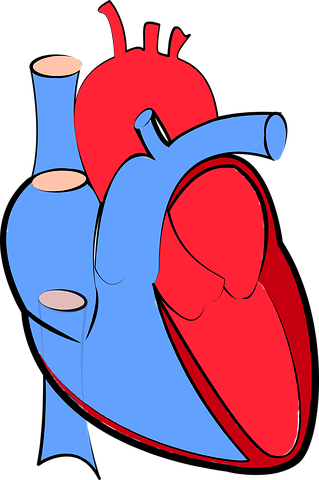Heart failure is, simply put, a condition where the heart is not able to pump as much blood out as there is coming in to the heart. This causes overload of fluid, which can leak out into the lungs (causing shortness of breath) and body tissues (causing swelling, especially in the legs and feet after standing). We tend to think of heart failure as a condition that occurs after a heart attack or some other definitive heart event has occurred – but did you know that heart failure in diabetes can happen without ever having had any known heart disease?
When heart failure occurs because the heart is not able to contract properly, this is called systolic dysfunction – this is the type of heart failure that occurs after a heart attack, and is often abbreviated as HFrEF (heart failure with reduced ejection fraction). Diastolic dysfunction is when the heart can contract properly, but cannot relax properly because it has become thick and rigid – this is the type of heart failure that is often missed in people with diabetes (often abbreviated as HFpEF – heart failure with preserved ejection fraction – and sometimes referred to as ‘diabetic cardiomyopathy’). The evidence for diabetic cardiomyopathy is strongest in type 2 diabetes, though this may affect people with type 1 diabetes as well (more on this here).
We are now just beginning to learn how common heart failure is in people with type 2 diabetes – in fact, one study showed that 2 out of 3 asymptomatic people with type 2 diabetes had diastolic dysfunction (HFpEF).
When I speak to colleagues about the growing knowledge and concerns about heart failure in people with diabetes, many doctors will say that they don’t see much heart failure in their practice. This is likely because they are thinking about the fact that only about 10-15% of people with type 2 diabetes have established heart disease (and only a proportion of these having had a heart attack in particular). I encourage them to think of common symptoms that could actually be due to undiagnosed heart failure:
- swelling in the legs/feet is often blamed on obesity impairing lymphatic drainage – could this actually be heart failure?
- shortness of breath/fatigue while walking/moving is often attributed to being ‘out of shape’ – could this be heart failure?
- sleeping poorly/feeling unrested? Yes, sleep apnea should be tested for – but could this be heart failure?
In light of recent evidence for a class of diabetes medications called SGLT2 inhibitors to prevent heart failure in people with diabetes, (see here and here and here), there has been much more attention drawn to this important, and often undiagnosed, complication of diabetes.
We as clinicians need to be on the lookout for this frequent, forgotten, and potentially fatal complication of diabetes.
Follow me on twitter! @drsuepedersen
www.drsue.ca © 2019












